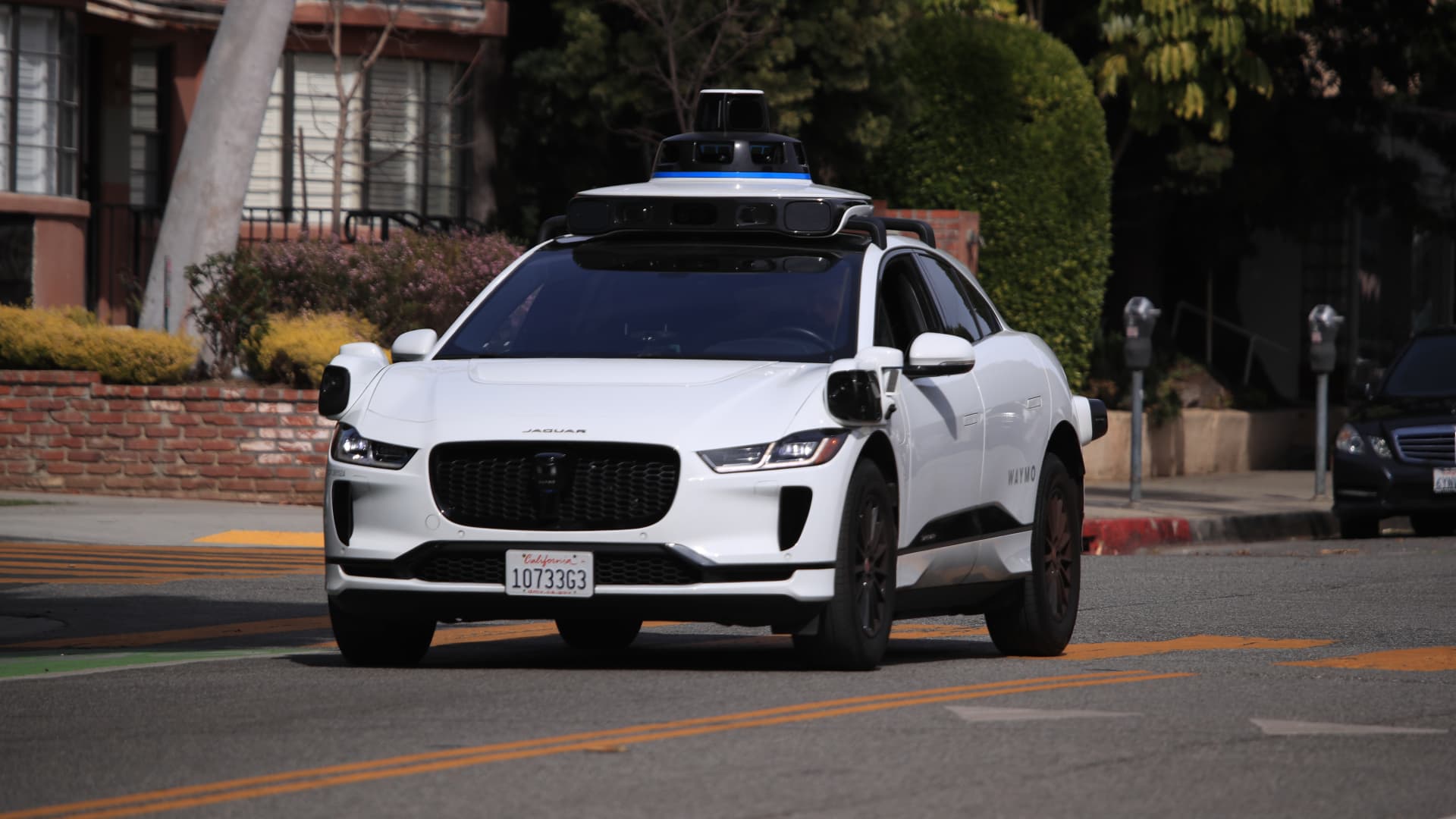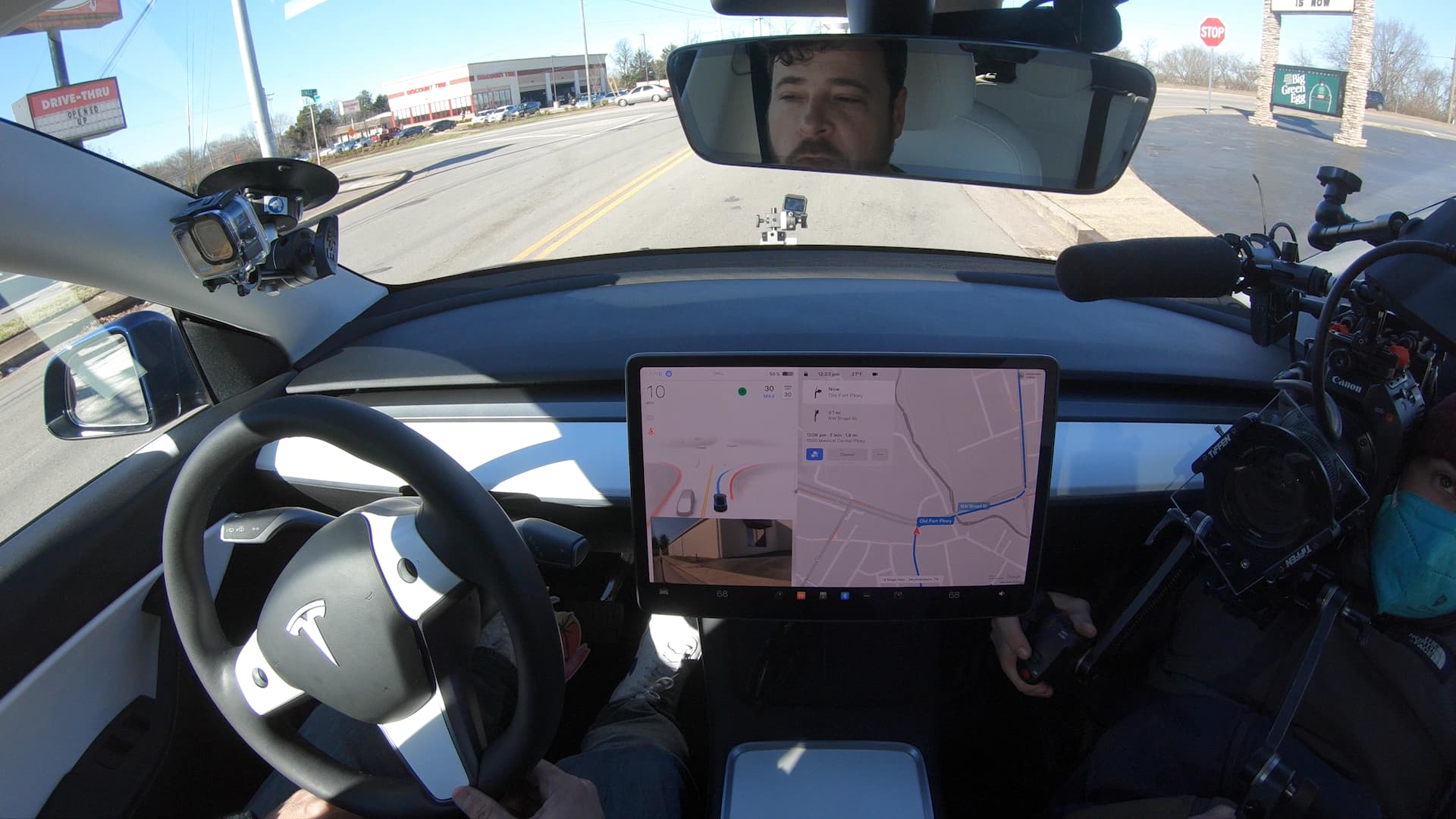Waymo robotaxis coming to Austin, Texas

Passengers ride in an electric Jaguar I-PACE car outfitted with Waymo full self-driving technology in Santa Monica, California, Feb. 21, 2023.
Allen J. Schaben | Los Angeles Times | Getty Images
Waymo, the Alphabet-owned autonomous vehicle company, is officially entering the land of breakfast tacos: Austin, Texas will become the newest city to offer Waymo’s ride-hailing services, according to a Wednesday announcement.
Austin is the fourth major city to allow Waymo’s ride-hailing pilot program, behind Metro Phoenix, San Francisco and Los Angeles. The program’s “initial phase of operations” will begin in the fall “with fully autonomous deployment,” but Waymo will wait to offer rides to the public until a few months later. The company had been conducting early tests in Austin since at least March of this year.
“We’ll definitely follow a similar market entry playbook as we have in the past and are currently doing in LA (e.g., manual testing -> supervised testing -> fully autonomous testing -> then public service),” Chris Bonelli, product communications manager at Waymo, told CNBC. He added, “We won’t start that market entry playbook until this fall, and then those various phases will continue from there.”
Waymo’s autonomous ride-hailing service will be available night and day in areas like downtown Austin, Barton Hills, East Austin, Hyde Park, Riverside and more, according to a blog post. The company cited reports of Austin’s fast-growing economy as influential in its decision to expand its services to the city, as well as its dense population, with nearly 2.5 million people in the metro area.
Bonelli declined to share a specific vehicle count for Waymo’s planned Austin fleet.
The company has raised at least $5.5 billion in funding since Alphabet set up Waymo as its own entity in 2016. Waymo earmarked its latest round, which totaled $2.5 billion from investors including Alphabet and Andreessen Horowitz in 2021, for advancing its technology and expanding its team.
In recent years, Waymo and competitors in the self-driving space have waged an uphill battle for adoption, amid consumer safety concerns, red tape in cities and the need for more human safety drivers.
Nearly three years after the release of Waymo One, Waymo’s fully driverless service, it remains one of only two such services with commercial operations in the U.S. Part of the challenge is due to robotaxi companies’ struggles to land in cities with not only favorable local leadership and regulatory environments, but also the perfect mix of characteristics, such as road infrastructure, climate and population.
Waymo announced in late July it would “push back the timeline” on its autonomous semi-truck development and instead focus on autonomous ride-hailing services. An undisclosed number of layoffs were part of the decision to pause trucking efforts.




